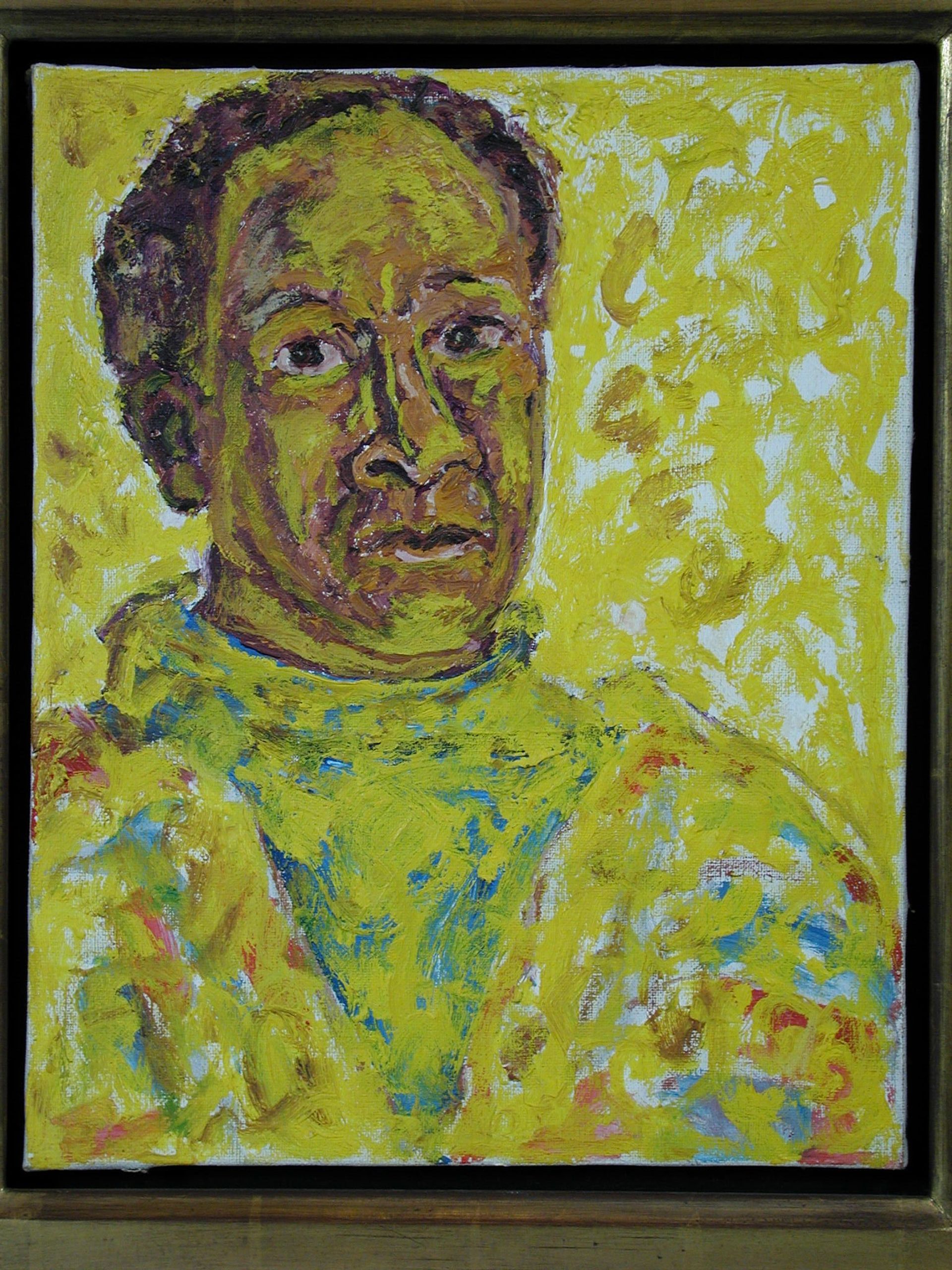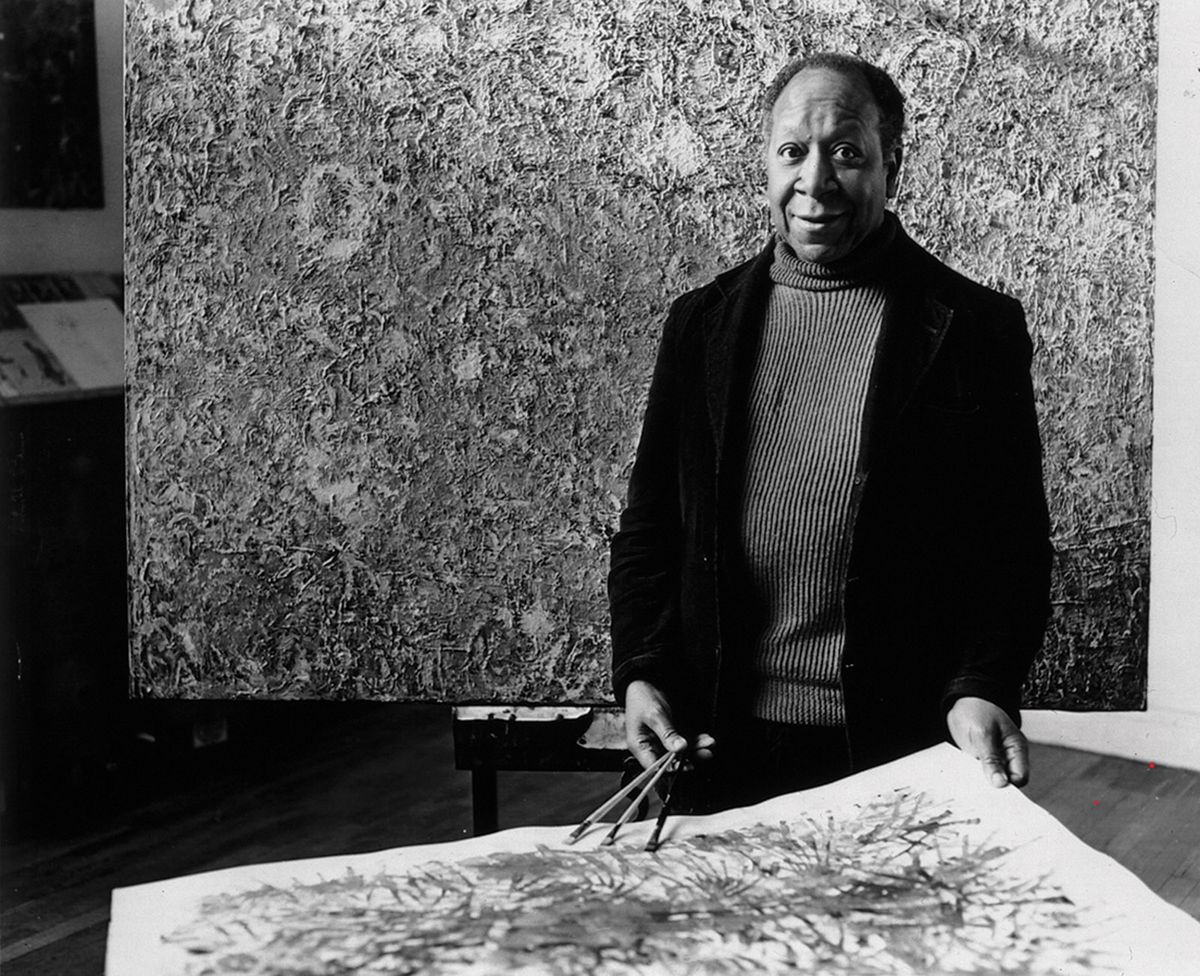The first full-length documentary about the Modernist African American painter Beauford Delaney has been in the works for a decade, but its producers are now considering filming its remaining footage over Zoom due to obstacles brought on by the coronavirus. The premier of Beauford Delaney: So Splendid a Journey, originally planned for the 2020 Cannes Festival in May, now hinges on when the crew can travel to shoot some final interviews and location footage.
The project is a collaboration between two American expatriates living in Paris—Delaney’s adopted home for the last 26 years of his life—and began when film-maker Zachary Miller volunteered to capture a ceremony organised by Monique Wells in 2010 at the artist’s grave. “I didn’t know how the footage might eventually be used, but I knew we at least needed to have the film,” recalls Wells, a writer specialising in the African American presence in Paris who began a French foundation, Les Amis de Beauford Delaney, to memorialise the painter’s life.
Miller had never heard of Delaney before the ceremony, but was moved to create a short film. He began modestly by interviewing people in Paris who knew Delaney or collected his work. Miller spoke with Burt Reinfrank, for example, a close friend of the artist who described his Rue Vercingétorix studio and a special chair that was reserved for portrait sittings.
As Miller learned about Delaney and saw more of his paintings in person, he decided to tell a fuller version of the painter’s life story, even if it was a bigger project than he originally intended. Miller has spent years studying Delaney’s biography, watching taped academic conferences about the artist and conducting interviews. Among the conversations he still hopes to film are with the author and political activist Cornel West and the historian Henry Louis Gates, Jr.
The thing I found most interesting was how well he wrote. His letters are almost poetryZachary Miller, film-maker
It was when Miller finally had the opportunity to read Delaney’s handwritten letters held at New York Public Library’s Schomburg Center for Research in Black Culture, during the summer of 2019, that he developed a structure for the documentary. “The thing that I found most interesting was how well he wrote. His letters are almost poetry,” Miller says. “When you look at that, there’s a whole new side to the story. It’s not just a struggling artist, it’s a struggling artist who thought long and deeply about a lot of things. So that’s why I felt it was so important to have his words, as well as his art, as part of the documentary.”

Beauford Delaney, Self-portrait (1965) Tennessee State Museum, Tennessee Historical Society Collection
Delaney’s words are especially crucial given the fact that little footage of Delaney has survived since his death in 1979. “We have almost no video footage of Beauford himself, except for maybe two minutes,” Miller explains. “A lot of photographs, but hardly any video.” To resolve this absence, Miller is hoping to have the actor Clarke Peters (of the series The Wire, and Spike Lee’s most recent film Da 5 Bloods) recreate parts of Delaney’s life.
Miller now has a chronological outline for the film that will progress from Delaney’s childhood in Knoxville, Tennessee to early art education in Boston, through his time in New York during the Harlem Renaissance and his last decades in Paris. “[But] when we’re actually going to shoot, it is up in the air,” Miller says.
“I’m hoping the documentary will bring his work to a whole new generation of people. Especially at this time when the whole idea of Black and gay artists is more present, and he can be appreciated fully for both his art and his humanity,” Miller says. A rare solo exhibition of the Tennessee-born artist Beauford Delaney's colourful abstractions, portraits, and still-lifes, which also examines his 38-year relationship with the celebrated writer James Baldwin, has been organised by the Knoxville Museum of Art, but it was also shuttered by the coronavirus for several months, and is ending its run this weekend. “I think that this generation of young people, especially, would receive him very well,” Miller adds.


